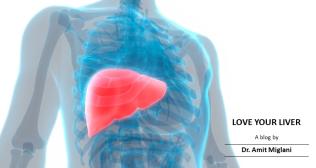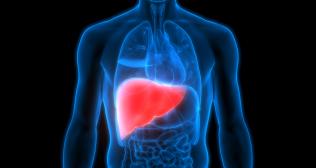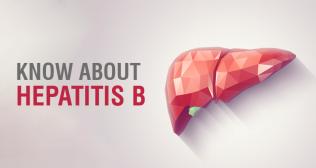
Flatulence Facts: What Causes It and How to Deal with the Symptoms
Gas builds up in the digestive system when your body processes food. It can also occur if you swallow air while eating or drinking. The gas is typically composed of oxygen, nitrogen, hydrogen, carbon dioxide and sometimes methane.
On average, individuals pass gas between 13 and 21 times a day, according to the National Institutes of Health. Conditions such as irritable bowel syndrome, celiac disease and gastroparesis can lead to increased flatulence. Additionally, consuming certain foods may also result in more frequent gas passing. Flatulence occurs in both men and women.
Causes
The causes of excessive gas in females and males are as follows:
Swallowing air: Swallowing air is something that happens naturally throughout the day, especially when we eat and drink. In most cases, we only swallow a small amount of air. However, if you tend to swallow more air than usual, it may lead to excessive flatulence and possibly burping as well. Some common reasons for swallowing more air than normal include:
- Chewing gum
- Smoking
- Wearing ill-fitting dentures
- Sucking on items like pen caps
- Drinking carbonated drinks
- Eating or drinking too fast can cause you to swallow extra air
Dietary choices: The foods you consume can contribute to excessive flatulence. Carbohydrates, in particular, are known to produce more gas. Proteins and fats generally cause less gas than carbohydrates, though certain proteins can make the gas smell stronger.
Underlying conditions: If your diet is low in carbohydrates and sugars, and you are not swallowing excess air, excessive flatulence may be linked to a medical condition. These conditions can range from short-term health issues to chronic digestive disorders. Some of the conditions that may cause increased flatulence include:
- Constipation
- Gastroenteritis
- Food intolerances, like lactose intolerance
- IBS
- Crohn’s disease
- Celiac disease
- Diabetes
- Eating disorders
- Ulcerative colitis
- Dumping syndrome
- Gastroesophageal reflux disease (GERD)
- Autoimmune pancreatitis
- Peptic ulcers
Diagnosis
If you are concerned about flatulence, it’s a good idea to consult a healthcare professional. They will typically inquire about the following:
- Your symptoms
- Your diet
- Your eating and drinking habits (such as portion sizes and eating speed)
- Medications and supplements you’re taking
- Your medical history
They may also perform a physical examination to check for any swelling, tenderness or abnormal sounds in your abdomen, which could include a rectal exam.
In some cases, your healthcare provider might recommend additional tests, such as X-rays, blood tests or stool tests, to determine if an underlying health issue is contributing to your flatulence.
Treatment
Medications may also be used to address flatulence, depending on its underlying cause, such as intestinal bowel syndrome. Before incorporating any medications or supplements into your routine, it is a good idea to consult with a healthcare professional to ensure they are safe for you.
Home remedies for flatulence
You can often relieve excess gas and reduce flatulence by making changes to your lifestyle and diet. Some effective home remedies for flatulence include:
- Keeping a food diary: It can help you identify which foods trigger gas in your body. Once you pinpoint the foods that lead to excessive flatulence, you can try reducing your intake or eliminating them from your diet.
- Adjusting your diet: If your diet contains a lot of hard-to-digest carbohydrates, consider replacing them with easier-to-digest options.
- Eating smaller, more frequent meals: Having five to six smaller meals throughout the day, rather than three larger ones, can be gentler on your digestive system.
- Reducing air swallowing: Try to minimise activities that can lead to swallowing excess air, like chewing your food thoroughly and avoiding habits like chewing gum, smoking and using straws.
- Drinking plenty of water: Staying well-hydrated can help prevent constipation, which in turn can reduce gas.
- Exercising regularly: For some people, regular physical activity helps stimulate digestion and can reduce the occurrence of flatulence.
- Adjusting your posture: Sitting upright can assist your body in releasing excess gas more easily.
- Eating ginger: Ginger is recognised for its ability to support digestion, and improving digestion can help alleviate flatulence and bloating.
Complications
- Severe and persistent flatulence can significantly affect your physical well-being, often leading to flatulence symptoms such as pain, cramping and bloating.
- In addition to physical discomfort, excessive gas can also have an impact on mental health. Dealing with frequent flatulence, especially in social settings, can be stressful or embarrassing.
- Fortunately, using home remedies, medications or a combination of both can help alleviate gas and reduce the risk of complications. Experiment with different approaches to find what works best for you, and consider consulting a healthcare provider if flatulence is interfering with your daily life.
Conclusion
Flatulence on its own is rarely a sign of a serious health issue. While it can cause discomfort and embarrassment, it generally indicates a healthy digestive system. If you are experiencing discomfort from gas, adjusting your diet may help.
However, it is important to consult your healthcare provider if your gas is severe, persistent or accompanied by symptoms such as vomiting, diarrhoea, constipation, unexplained weight loss, blood in the stool or heartburn.



















